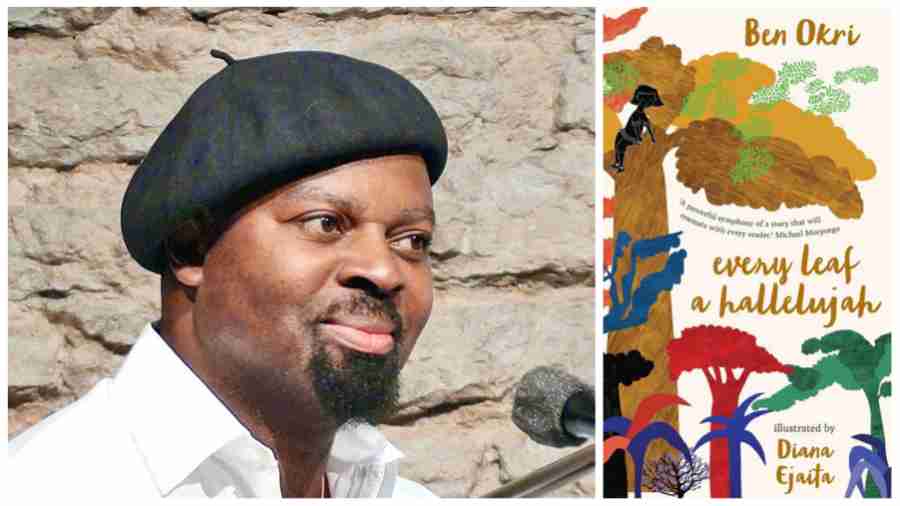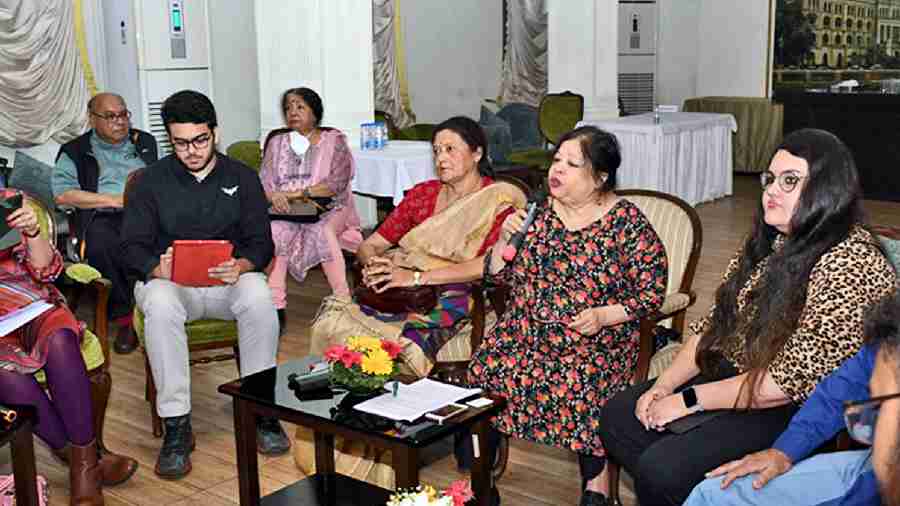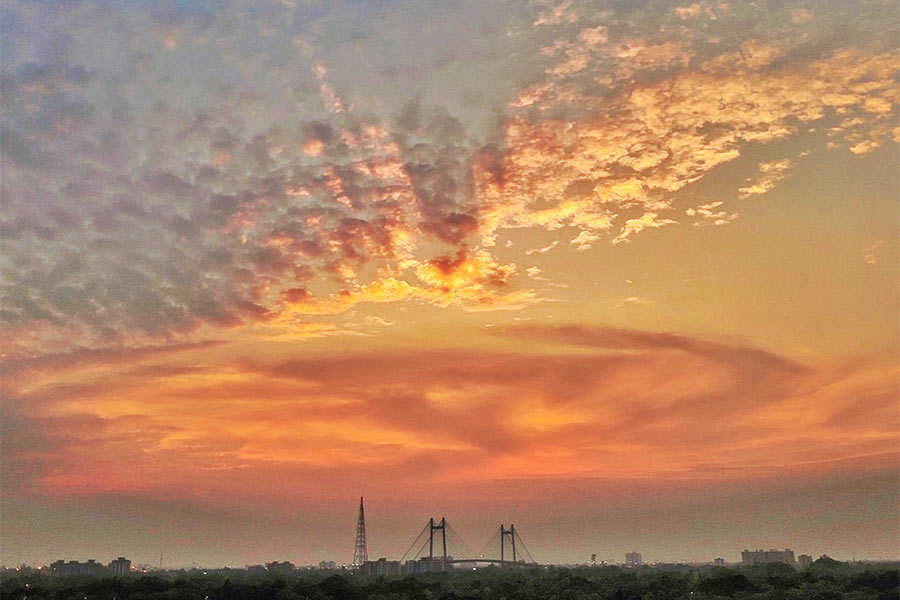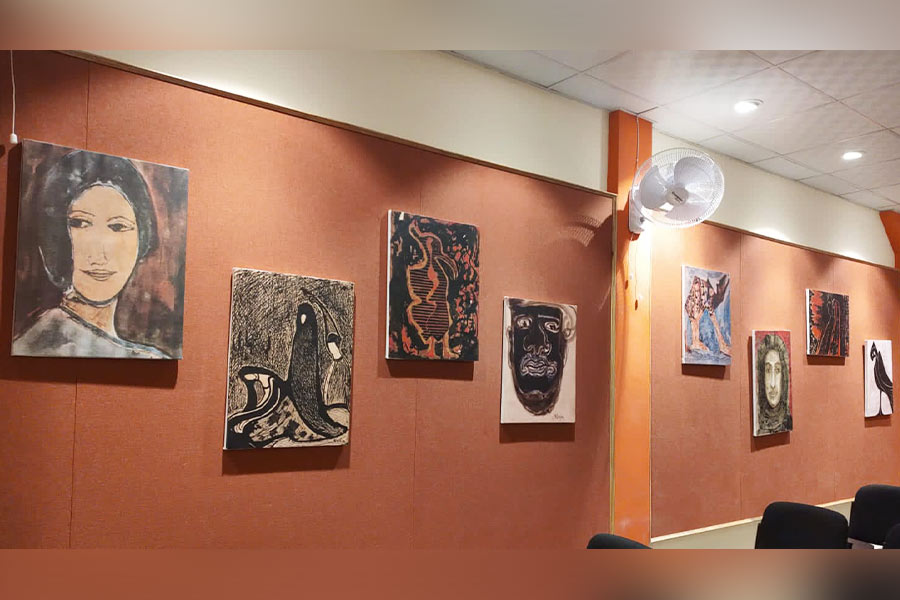The moment Ben Okri appeared on the big screen among other members and guests of The Bengal Club’s Book Club, who joined over Zoom at The Bengal Club, a moment of silence wrapped in awe for the Booker Prizewinning author prevailed. All eyes and ears, fixed on the frame wearing a striped blue shirt and a beret, listened with rapt attention as Okri spoke about his book, Every Leaf a Hallelujah, that the group of 25 have been discussing before his digital entry. Starting off with the theme of the book, the Nigerian-British author said: “You either turn your face away saying I can’t see it (environmental disaster) or I can’t deal with it or you turn towards it and face it. Both responses have a huge impact on our personal life and collective response to what’s happening around us.”
Moving on to his protagonist Mangoshi, he reasoned: “I chose a child of seven, a magical number in many traditions, and a girl for many reasons. As a storyteller, the height of storytelling is when you see something urgent in the world and collapse and dissolve it into the purity of a story. And the most powerful thing in a story is when you can say 25 things in a single thing. It’s very difficult. With Mangoshi taking responsibility of the world — the failure of not just one generation but many generations, and not just the failure of one community but all communities — with consciousness, awareness and courage was a tremendous act. She could have chosen to ignore but she risked her life to save her mother and the village and went inside the forest in search of a mythical flower, into a world full of uncertainties.”
Okri also informed that he took inspiration from a tree to write this book during the pandemic. He said: “I couldn’t have written this book without befriending a tree, a spiritual sponsor. So, the tree adopted me.” The next few minutes he spoke passionately about the vanishing forest, the failure of science and the failure of humanity in ignoring the distressing call of nature. “When I was growing up in Nigeria, the forest was all around us like a mother and we took it for granted. I watched great lorries loaded with timber taking away the magical aspect of our lives. I went to school and half of it was gone. I came to England and when I went back it had vanished. People had presided over the devastation of one of the most important things they had — the relationship with nature. It’s a great tragedy. And it’s not true of Africa or Nigeria, even in India I could go from one village to another without trees. It’s also the failure of science and its limitation; the failure of science to appreciate the wonder and richness of nature,” signed off the author leaving everyone charged.
Cut to the book discussion that was attended by scholars, students of masters and literary and environment enthusiasts, it started with professor Chaitali Maitra summing up her thoughts on the eco fable, including reading it without any appendages, the illustrations in the book by Diana Ejaita and more. Taking over from her, historian Harish Mehta questioned if it’s a literary coincidence that both Salman Rushdie and Ben Okri have young heroines in their latest books. He also echoed the common thought that crossed the reader’s mind — Is Mangoshi inspired by Greta Thunberg? The last point questioned the capability of big pharmaceutical companies in throwing a cure. Taking up from Harish, Anasuya Pal urged that it should be included in the syllabus as it’s very timely written and carries a heavy message. Having lived in Africa, she also talked about Sangomas, the native medicine people who communicate with the dead and bring healing.
Urmi, a chemical engineer, gave a more scientific turn to the evening talking about the fundamentals of photosynthesis, the depletion of the ozone layer and the birth of new diseases. She also urged everyone to be open-minded and choose alternatives to wooden furniture available in the market. Julie who spearheaded the conversation read out an important essay written by Okri and reminded the audience why this generation is called the century of Anthropocene.

(L-R) Ben Okri, Book cover of Every Leaf a Hallelujah by Ben Okri
A few non-members also joined the discussion and the first one to take the lead was Roma Bhattacharya. Speaking outside the box, and referring to Okri as one of the most important voices, she said: “I believe this book is the profound act of restoration of the world of imagination, the mythic dimensions of being.” The evening then zeroed in on local issues like the Calcutta wetlands and how land sharks are destroying natural resources, and the need for being one with nature and more.
Krittika added a poetic flavour to the evening by reciting lines from a self-written poem, A Time To Come, that resonated with the theme of Okri’s book and talks about a time when humans don’t want to live on earth because there’s nothing left on it. Joining in, Vibha called it a charming story rich with colours, splendid yet interspersed with dark detailing, making it a visual novel for children.
To librarian Sebanti Sengupta, the novel and Mangoshi reminded her of the well-known early 20th century Bengali children’s author Dakshinaranjan Mitra Majumdar’s Kiranmala. “Kiranmala was also a young girl who travelled to many places and faced storms, wild animals and many dangerous things along her journey. She proved to be the bravest of the brave. Both Kiranmala and Mangoshi are symbols of hope and courage.”






